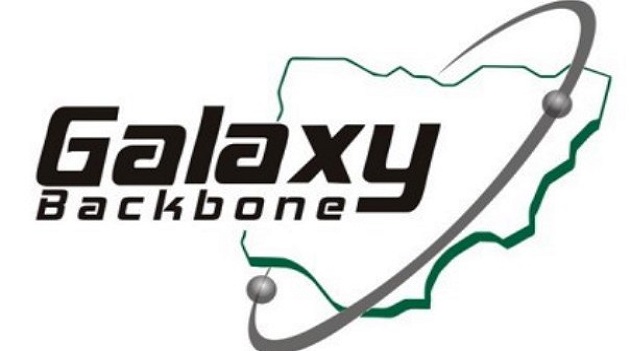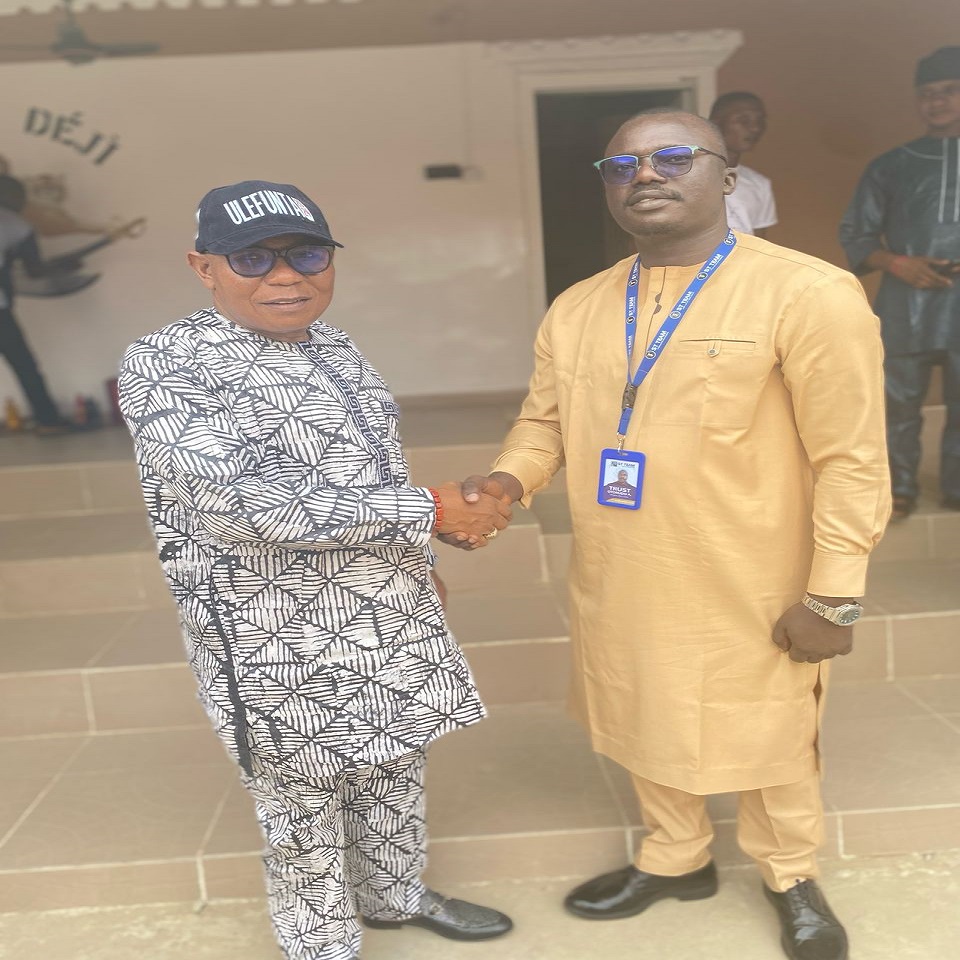News
How and Why Internet Access is Prohibitive
Dearth of infrastructure; vandalism; lack access to finance; and epileptic public power supply among others have all conspired to send the cost of internet access to the rooftops , thereby keeping millions of Nigerians out of the information superhighway, Nigeria CommunicationsWeek can now reveal
Access to the Internet is deemed a basic human right that should be guaranteed and protected by states by the UN Human Rights Council.
But in Nigeria, the ability of telecommunications operators to deploy requisite broadband infrastructure needed to improve internet penetration is being hampered by prohibitive cost of right-of-way.
The federal government has announced a new right-of-way policy to ease difficulties encountered by operators in the erection of telecom infrastructure but it is not being enforced as there are still absurd levies by various agencies and state governments on right-of-way approvals.
Nigeria is also facing man-made internet dam because it has enough bandwidth capacities from the various sub marine cable companies sitting on her Atlantic shore but lack sufficient inland fibre optic infrastructure to carry the bandwidth to offices and residences in the hinterlands.
Similarly, the sustained attacks by Boko Haram, the Islamic sect on telecommunications’ facilities as well as acts of vandalism pose dangers to investments in the sector.
The willful destruction and vandalism of telecoms infrastructure and equipment; added to the high cost of maintaining the infrastructure after deployment have made operators to concentrate on parts of the country where there are relative peace.
Omobola Johnson, minister, communications technology, even concurred at a broadband summit 2012 held in Lagos in December, when she said that “No right thinking infrastructure provider will invest in the deployment of infrastructure, if this situation prevails.
We will continue to have tremendous under-utilised capacity of international bandwidth,’’ she said.
Nigeria CommunicationsWeek gathered that well over 90 per cent of Nigerians still lack access to the web, as well as personal computers.
Poverty has become a household name in Nigeria. Majority of the country’s population, according to the statistics released by the National Bureau of Statistics are poor.
The nation’s financial institutions are not helping matters because of their reluctance to lend to majority of poor Nigerians to purchase basic ICT tools to lift them out of poverty lines.
There are also problems of multiple taxes; and the notoriously unreliable public power supply.
Operators are subjected to multiple taxes from all tiers of governments who see telcos are milk cows which must be milked dry.
Some states, ministries, departments and agencies (MDAs) of government even employ extra-legal means to coerce operators to submit to the payment of illegal taxes
As if that is not enough, telcos have all turned to independent power producers to power their operations while public power supply is standby.
The power supply is like the nerve, in fact, the engine of production.
The near absence of public power supply has a devastating effect on businesses and has forced many smaller telecom companies to close shop because they could no longer remain competitive.
Nigeria CommunicationsWeek also gathered that internet access has continued to elude majority of Nigerians because global System for Mobile communications operators are holding firm to their dominance of the dongle segment of internet service provision by frustrating Internet Service Providers with the pre-requisite technology from rolling out such service.
A dongle is a small USB device that allows a user access the internet with a 3G mobile broadband connection.
For any internet service provider be it telecommunications provider or traditional ISP to be able to launch dongle mobile broadband service especially in cities such Lagos, such provider must have multiple base transceiver stations (BTSs).
Presently, only GSM service providers have the required number of base stations, some with as much as 800 in Lagos alone.
It was gathered that GSM operators are reluctant to collocate with ISPs for fear that their (GSM providers) market may be eroded if the ISPs ride on their back to deploy 4G services said to be profoundly disruptive.
It is profoundly disruptive because it will slash the cost of internet service by more than 1000 per cent.
News
Senate Committee Partners with Kuda Bank to Tackle Compliance Crisis as Nigeria Loses ₦3.4 Trillion

Over ₦3.4 trillion in financial infractions were uncovered across federal Ministries, Departments, and Agencies (MDAs) in 2021, according to the Auditor General’s report — a staggering figure that highlights Nigeria’s deepening compliance crisis and the urgent need for stronger oversight in public institutions.

In response, the Senate Committee on Legislative Compliance is hosting a high-level workshop to address the root causes of weak oversight and institutional gaps. The two-day event, with the theme ‘Consolidating Strategies for Strengthening Legislative Compliance by MDAs’, will take place on April 15 and 16, 2025 at NAF Suites, Abuja, bringing together lawmakers, regulators, and over two hundred representatives from federal MDAs.
Kuda Microfinance Bank is co-sponsoring the workshop as part of its commitment to supporting responsible innovation, governance, and regulatory alignment in Nigeria’s financial ecosystem.
Rasaq Kadri, Kuda’s Head of Compliance, will deliver a keynote address on the second day of the event, highlighting the efforts of Nigeria’s fintechs to promote inclusion and financial literacy without compromising on compliance best practices.
“When public funds go unaccounted for, it doesn’t just damage government credibility, it affects the entire financial ecosystem, including fintechs,” said Kadri. “We can’t build trust-driven products in a trust-deficient environment. Every time compliance is treated as a box-ticking exercise, we miss the chance to build something that lasts. Fintechs have the tools and perspective to support better governance, but more importantly, we have a responsibility to be part of the solution.”
As a sponsor, Kuda will take the workshop to engage directly with key stakeholders in Nigeria’s regulatory and public service ecosystem.
Plenary sessions will be chaired by the Honourable Attorney General of the Federation, Lateef Fagbemi SAN, and the Honourable Minister of Finance, Wale Edun. Conversations will focus on closing compliance gaps, strengthening institutional transparency, and promoting cross-sector collaboration.
The Senate Committee on Legislative Compliance Workshop is a unique platform for dialogue, knowledge-sharing, and collaborative action.
News
FG Inaugurates Board of Galaxy Backbone

The Federal Government has inaugurated the new Board of Directors of Galaxy Backbone Limited (GBB). The board’s mandate is to lead Nigeria’s digital transformation in Information and Communication Technology (ICT) infrastructure and services.

It will support Federal Government Ministries, Departments, and Agencies (MDAs) in a fast-changing landscape.
George Akume, Secretary to the Government of the Federation, led the inauguration. He emphasised the government’s commitment to making GBB more agile, responsive, and impactful. The aim is to drive national digital public infrastructure and service delivery. This was according to a statement by Segun Imohiosen, Director of Information and Public Relations.
The board has George Akume as Chairman. Its members include Rabi’a Adamu Waziri from the Petroleum Technology Development Fund (PTDF), Abubakar Abdulqadir Maje from the Joint Stock Association (JSA), Kemi Owonubi from the Ministry of Finance Incorporated (MOFI), and Margareth Ebute from the Ministry of Communications and Digital Economy.
Other members are Ibrahim Adeyanju, Olusegun, Olumbe Akinkugbe, Sanni Ibrahim Mohammed, and Adama Pindar from Galaxy Backbone Limited.
In his acceptance speech, Prof. Ibrahim Adepoju Adeyanju, Managing Director of Galaxy Backbone Limited, assured that the board will focus on sustainability. He said it plans to realign its vision and build a strong foundation for achieving strategic goals.
He also noted that within one year, the agency developed its Integrated Digital Transformation Strategy (IDTS). This strategy will run from 2025 to 2028.
News
ST Team Partners with Deji of Akure to Boost Agriculture and Food Security in Ondo State

Smart Treasure (ST Team) has honored the Deji of Akure, His Royal Highness Ọbá Aladetoyinbo Ogunlade Aladelusi, Odundun II, CFR, with a plaque of recognition for his dedication to the welfare of his subjects.

The presentation was made at the monarch’s palace in Akure by a delegation led by Instructor Luke Mbadugha from the Lagos Operations Center.
The visit was part of ongoing discussions on a partnership aimed at boosting agriculture in Akure, Ondo State.
The initiative, spearheaded by the ST Team, seeks to ensure the availability of farmland for agricultural purposes.
Under the arrangement, the ST Team will provide seedlings and manpower, while a significant portion of the proceeds will be distributed to the indigenes at no cost.
The remaining proceeds will support the administrative operations of the ST Team.
In his response, Ọbá Aladetoyinbo announced the allocation of a parcel of land at Ofosu, along the Ondo-Benin Road, for the project.
He described the initiative as a commendable effort to enhance food security for both the local community and the nation.
The monarch also called for a follow-up meeting to facilitate the assessment of the land for the project’s commencement.
Meanwhile, farming activities are set to resume at Aladodo Isikan in Akure South Local Government Area, another site designated for the agricultural project.
The four-acre land will be used to cultivate crops such as yam, cassava, plantain, and maize. A test run of maize planting began on April 9, 2025, with expectations of harvesting in three months.
Kabiesi Akinwunmi Adekanmbi Obey, the monarch of Olulero Okelero, Onitan Isikan, lauded the ST Team for their commitment to ensuring food availability.
He emphasized the importance of agriculture, stating, “Whoever brings food brings life.”
The ST Team, an investment platform dedicated to reducing poverty in Africa by 30% by 2027, has been actively involved in various Corporate Social Responsibility programs, including this agricultural initiative.
The project underscores their mission to create financial freedom and improve the quality of life for individuals across the continent.

 E-Business2 days ago
E-Business2 days agoCyberattacks: ‘56 Percent of Cases Stem from Existing Logins

 General News3 days ago
General News3 days agoAFD Commits €3m to Africa’s Financial Inclusion

 News2 days ago
News2 days agoSenate Committee Partners with Kuda Bank to Tackle Compliance Crisis as Nigeria Loses ₦3.4 Trillion

 E-Financial3 days ago
E-Financial3 days agoVerve Expands Payment Frontiers with Global Partnerships, Contactless Innovation

 Broadcasting2 days ago
Broadcasting2 days agoSubscriber Withdraws Suit against MultiChoice, FCCPC over Price Hike

 E-Business2 days ago
E-Business2 days agoKaspersky Presents Insight on 14% Increase in Spyware Attacks on Businesses in Africa @ GITEX Africa

 General News3 days ago
General News3 days agoEU Aims to Remove Barriers to AI Development

 News3 days ago
News3 days agoFG Inaugurates Board of Galaxy Backbone



















